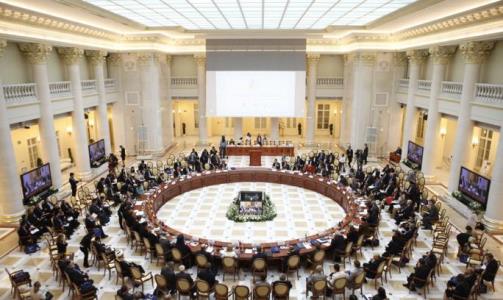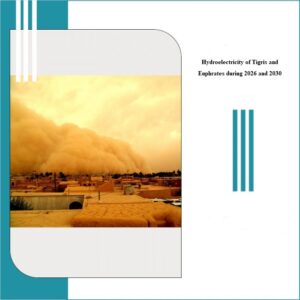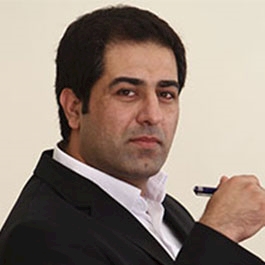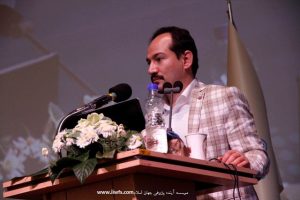Bahman Dahestani/ Expert in Islamic world
While disputes, religious alignments and sectarian hatred considered as the most important and basic cause of current tensions and inflammations in the Middle East,”religious dialogues” and few serious and traditional dialogues have been closed among religion leaders and followers in this region and few societies and communities with records in this area practically have lost the ability of any scientific innovations and sometimes they place in religion alignments.
However, according to the statements and performance of religion leaders and intellectual institutions of various Islamic secs, almost not a clearly outlook for reviving the talks or effective religious dialogue can be imaged and in the contemporary history of the Middle East such obstruction is almost rare.
The current obstruction shows its severity and importance when it clears that the direct religious dialogue continuously has been followed by religious leaders, Muslim intellectuals and even Islamic states nearly 90 years after the collapse of the Ottoman Caliphate. In fact, with the fall of the Ottoman Empire on March 3, 1924 (Ottoman Empire was raised on the basis of Islamic caliphate and considered as the flagship of Muslim integration and Islamic countries) the relations between Muslim entered a new state. The gradual decline of Ottoman rule as a glorious symbol of Islamic civilization also growing pioneer of European civilization which generally made known itself in form of colonization, created many concerns among Islamic scholars.
Abdul Hamid II, the thirty-fourth Ottoman caliph who ruled from 1876 to 1909 came to this conclusion that his government cannot resist against Europe except with a tactic and a new program. Therefore he expressed the plan of Islamic Solidarity Society by using his caliphate and then tried to bring together and unite Muslims who complained about his continued caliphate rejections and descends from the practice of Islam and Sharia. A plan which was welcomed approximately in large scale also in form of cross-sectional and great scholars such as Jamal al-Din Asad and others in different parts endorsed Khalifa’ call.
The reign of Abdul Hamid II witnessed the last efforts of Ottomans to keep the reins of authority and integration of the caliphate through strengthening communication and Islamic societies among societies under governance. At the same time, we must not forget that the efforts to develop the dialogue and Islamic integration were started and followed seriously by a wide range of scholars and Islamic activists even before the fall of Ottoman. The energetic and inclusive movement of Seyyed Jamal al-Din al-Assad Abadi (Afghani) which was known as the Islamic awakening and in its essence had relied on scientific and intellectual dialogue among scholars of religions, was the most important Islamic innovation before reshuffling the Ottoman Caliphate which of course, as an awareness movement and independent approach of official system of caliphate goes forward. Although numerous relations had made not only with the Caliphate but other governments around Asia and Europe. At the end of the Caliphate and in new era, the idea of “unity of Islamic world” that were induced and developed by the efforts of Jamal al-Din al-Assad Abadi and his disciples were the center of efforts in political level.
In this regard, many meetings and gatherings for discussion and reflection held to increase more solidarity, reduce the gaps and differences and to form a consensus on the fundamental issues.
In June 1924, the first meeting held in Mecca by the invitation of Sharif Hussein, the governor of this region during hajj. Then Cairo during the reign of Fouad on Egypt witnessed a meeting which was initiated by Sheikh Mohammad Hossein Khezri, head of Al-Azhar community.
At this point, due to the collapse of the most important experiences and inclusive Islamic governance model, caliphate system was considered as the only imagined and effective system for uniting the Muslim. But according to the formation of national states, following the disintegration of the Ottoman territories which each one owned their secular interests, this aim seemed impossible. Therefore we see the changes in approaches and objectives in assemblies, association and Islamic Dialogue.
It’s more than a century despite defeating the failure on success in establishing, managing and continuing the religious dialogue in Middle East, this issue will be considered as a genuine and inevitable solution. Any flows and blocks in the Middle East cannot follow their aims and obtain its legitimacy and desirable prestige among Islamic nations without regarding to communities and dialogue between religions. There were no meetings or gatherings with participation of Shiite scholars in Sunni Islamic centers even many years after 2011 and couldn’t take any points without it. Mutually Shiite meetings had no effects without the participation of Sunni counterparts. This indicates on dependency and legitimacy of Islamic religions to each other which must be treated as an opportunity.
The important issue is that with formalizing many meetings and conferences in Middle East, reflections, studies and intellectual pathology by independent scholars, intellectuals and academic elites deepens away from formal environments and systems which we can see their effects on published books and papers in Islamic world, a fact which is promising but incomplete.
At the same time, the current closure of the original Islamic dialogue among religions is an opportunity to rethink and deepen the needs. However, much of the Shiite-Sunni tensions in the Middle East can be reduced by dialogue, real and serious discussion, recognizing the subject of dialogue, beginning, ending and the mapping is vital.
However the reputation of some past experiences considers as damages, there are many undone or unfinished ways. Further we must rely on past successful patterns and symbols. The reality is that many scientific and legal infrastructures are provided by Islamic scholars for religious dialogues among all of these ups and downs. And if politics block or led astray ways of interaction and union, the Islamic sciences and jurisprudence based on the teachings of Quran and prophecy have different roots which constantly bring itself to the recognition, understanding and intelligence. Empowerment, diversity and multiplying the “scientific channels” among Muslim scholars are between the models which can be examined in the context of Islamic sciences (jurisprudence, theology, ethics, philosophy, history, …) away from coming to the conferences immediately and the revival of a purely scientific exchanges among religious scholars in first step and then Islamic centers with a focus on the world intellectuals and not governmental organs.
It seems that religious dialogue in Middle East has remained the greatest impact and created better hopes when it forms and develops in scientific context, relies on independent scientists and researchers also tries to keep the distance from political powers and makes firm relation with heads of states.





